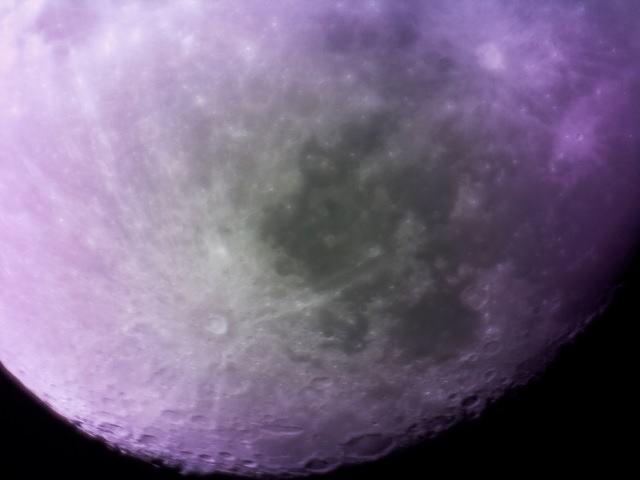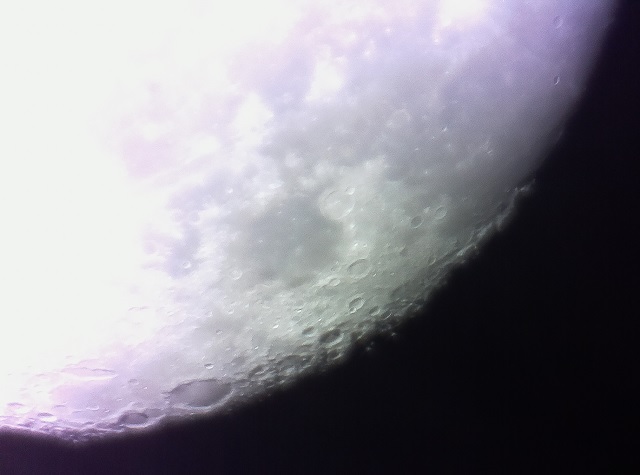 The moon viewed through the £100 3D telescope.
The moon viewed through the £100 3D telescope.
The University of Sheffield has released the first photos of space ever taken with a 3D printed telescope. The telescope cost just £100 to make and is comprised of components which are easy to purchase on the internet.
The telescope was created and developed by former physicist and member of the Institute of Physics, Mark Wrigley, and Physics and Astronomy research associate at the University of Sheffield, Andy Kirby. The instrument, known as the ‘PiKon telescope’, gained its name from the Raspberry Pi camera which is part of the telescope and the word ‘ikon’, which is Greek for image.
The innovative telescope has a magnification of times 160, which enables it to make detailed lunar observations as well as being able to view star clusters, galaxies and some planets. The PiKon consists of a Newtonian concave mirror which focuses an image onto the camera sensor. The Raspberry Pi camera is mounted directly in front of the mirror due to its small size.

The designs used to produce this telescope have been made available on the internet by the developers. The 3D printed telescope costs £100 to produce and hence budding astronomers can save over £800 compared to alternative telescopes with the same capabilities.
We hope that one day this will be seen on a par with the famous Dobsonian ‘pavement’ telescopes, which allowed hobbyists to see into the night skies for the first time. This is all about democratising technology, making it cheap and readily available to the general public. And the PiKon is just the start. It is our aim to not only use the public’s feedback and participation to improve it, but also to launch new products which will be of value to people.
Former physicist & member of the Institute of Physics, Mark Wrigley.
The Disruptive Technology Astronomy project was showcased at the University of Sheffield’s ‘Festival of the Mind’, which runs from 18th to 28th September 2014.